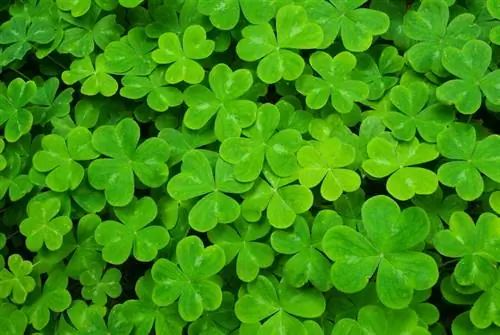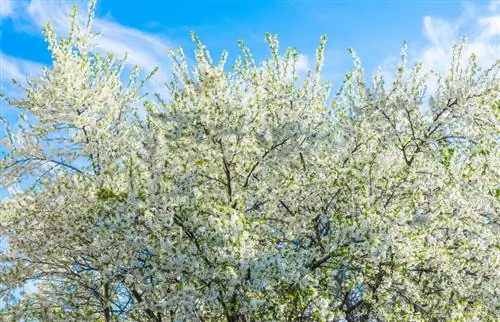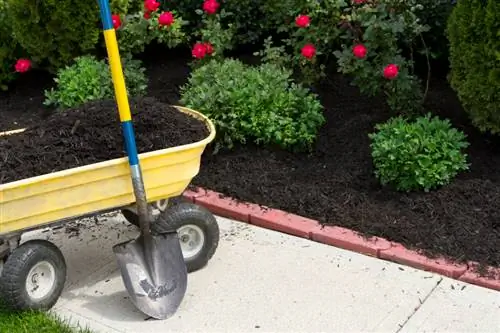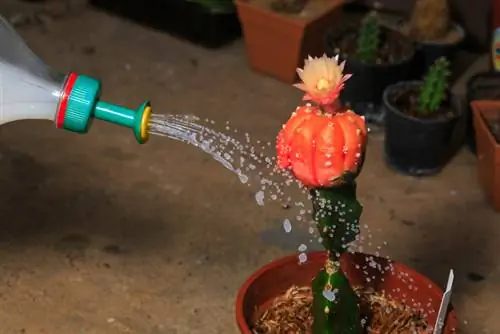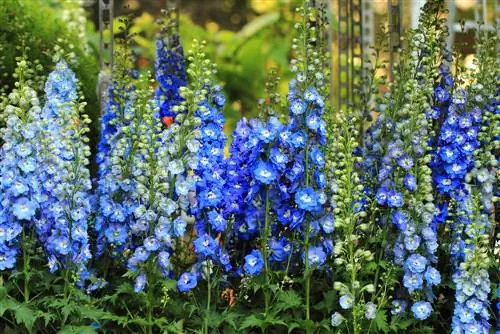- Author admin leonars@hobbygardeners.com.
- Public 2023-12-16 16:46.
- Last modified 2025-01-23 11:20.
The topic of fertilizer when it comes to clover can be interesting from three different perspectives: After all, with targeted fertilizer applications, not only can the growth of clover be influenced positively or negatively, but the clover itself can also be used as a valuable green fertilizer.
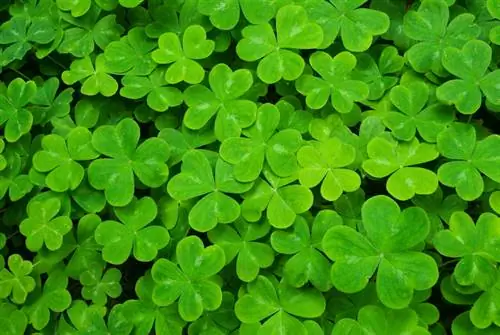
How should you properly fertilize clover?
In order to fertilize clover optimally, the soil should be sufficiently moist, contain phosphates and potassium and have a pH value between 6.0 and 6.7. Nitrogen fertilization is only useful as a boost for newly sown clover species.
Clover as green manure
In agriculture, clover is grown as a fodder crop, which also improves the soil. Red and white clover dig into the ground with relatively finely branched roots, so that heavily compacted soils are easily loosened. The nodule bacteria located on the roots of the clover ensure that nitrogen is enriched in the soil, meaning that there is no need to add artificially produced nitrogen fertilizer. If the cutting material from the perennial clover plants is not grown as feed for animals, then it can be incorporated into the soil.
Fighting clover in the lawn with fertilizer
Since clover can get its nitrogen from the air via nodule bacteria, as mentioned above, it survives significantly better than grass on nitrogen-poor soils. If the clover has already replaced the grass in large parts of your lawn, you can improve the growth of the lawn after scarifying the clover portion with a targeted supply of nitrogen-containing fertilizer. If there is an undesirable clover infestation in the lawn, do not use fertilizer mixtures containing high levels of phosphates, as this would increase the growth of the clover. Horn shavings usually do a good job when it comes to strengthening the grass at the expense of clover infestation.
Fertilize clover grown in the garden properly
The following nutrient proportions and soil factors are particularly important for the targeted cultivation of clover in the garden:
- Phosphate
- Kali
- Soil moisture
- pH value
The soil should not be waterlogged for the clover, but should still be sufficiently moist for the clover. In addition to a good supply of phosphate and potassium-containing fertilizer, the pH value of the soil is also crucial for he althy clover growth: For example, the pH value for growing red and white clover should be between 6.0 and 6.7. If deficiency symptoms occur in the actually very frugal clover, it is usually damage caused by dry periods or after frosts.
Tip
Fertilization with nitrogen is only an option for clover species as a boost for newly sown crops.

